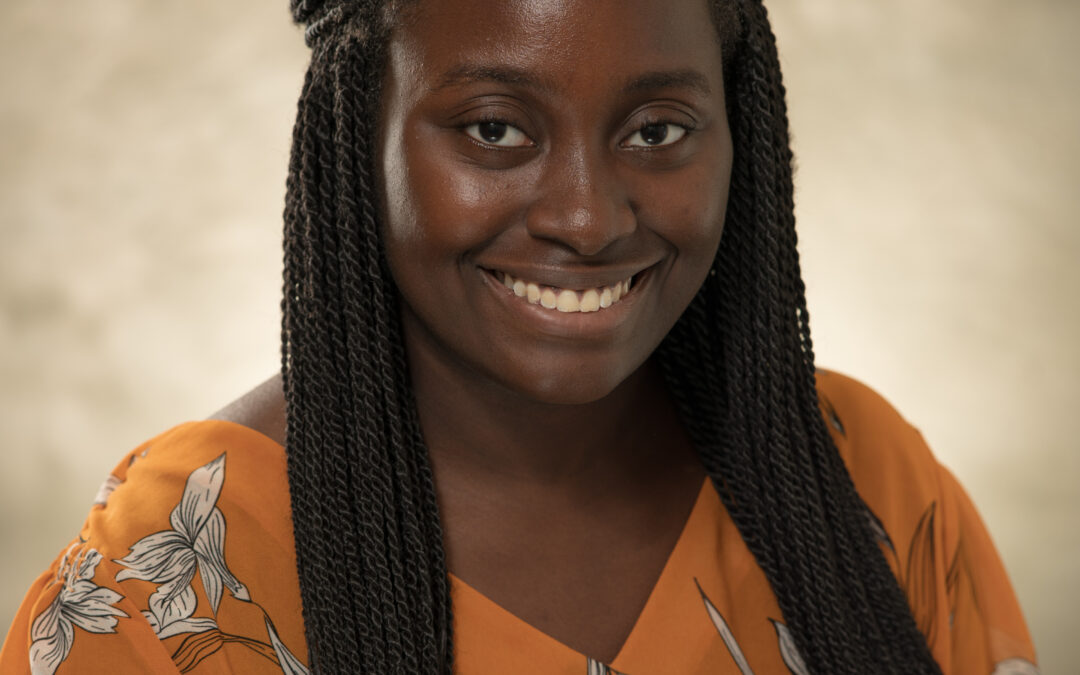Vongai Tizora, Bioengineering Junior
Cancer Scholars Program, 2018 Cohort
Hometown: Forsyth, Illinois
Do you have current or past experience working in a cancer research laboratory? If so, who was the principle investigator, and what was your role/area of research?
The spring semester of my freshman year I joined the Chemical Imaging and Structures Lab, run by Dr. Rohit Bhargava. My main role since the summer of 2019 has been investigating the effect of sample preparation variation on IR data and downstream processing. As a first step, I am focusing on the impact of sample thickness on data.
What first led you to your interest in science?
Ever since I was a kid, I have always had somewhat of a natural affinity for science, although it still took a healthy amount of effort to understand the content as with any other subject. My interest was further enhanced when I came to the conclusion that I wanted to become a physician someday. Understanding that physicians need to have a strong science background, I continued to build upon my knowledge in this field and took the necessary steps to ensure that I was on track to realize my long-term goal. My decision to go into bioengineering for my undergraduate degree was partially due to my interest in tissue engineering and gene editing, which I learned a bit about as an upperclassman at Huntley High School.
Why is cancer research important to you?
For a long time, I have dreamt of helping people. At the same time, I could not avoid occasionally feeling like I couldn’t make a difference given my level of education and the vast amount of knowledge I had yet to obtain. Aware that I had many more years before becoming a physician, I started looking into other ways that I could start contributing to society. Naturally, research has allowed me to contribute to the scientific community and continue to grow at the same time.
Cancer research in particular holds a very special place in my heart. I, as well as countless others, have known and lost loved ones battling cancer. Cancer, as with many diseases, impacts us all regardless of where we are from or what we do in life, and it is that truth that connects all of us. If I can contribute my time and efforts towards lessening the impact of cancer in our lives, I would consider it a great honor.
What are you most looking forward to as a student in the Cancer Scholars Program?
Of course, being able to meet my Primary Investigator and enter into a research lab was great. However, I have also enjoyed getting to know my cohort’s “why” about the reasons they wanted to go into cancer research and what their future hopes and dreams are. Also being able to look at the big picture when entering into research is of great importance and an aspect of the Cancer Scholars Program that I have enjoyed. At the center of everything it is crucial to be mindful that the work we are doing inadvertently touches the lives of human beings; not just sample numbers and not simply patients. Remembering our humanity will go a long way in ensuring our research is impactful, beneficial, and grounded in reality.
What do you hope to do in the future? What are your goals professionally?
In the future I hope to use my bioengineering background as a physician to help improve the healthcare outcomes of individuals living in underserved communities both within the US and abroad (most likely in Zimbabwe). I would love to work on a team of interdisciplinary individuals all striving towards the common goal of improving the human condition for everyone.
What are your personal interests or hobbies?
Currently I serve as the Internal Vice-President of the National Society of Black Engineers, and I am a member of Alpha Omega Epsilon, a sorority for women in technical sciences and engineering. Over the summer of 2020, I was a part of the Anti-Racism Task Force (ARTF) through the Grainger College of Engineering & IDEA Institute and our detailed recommendations were recently published. In my free time I love to read, write, and edit videos.

